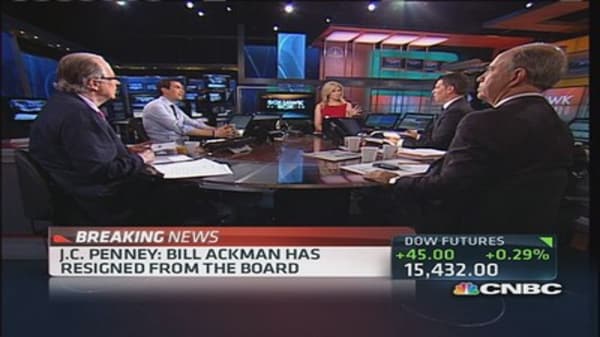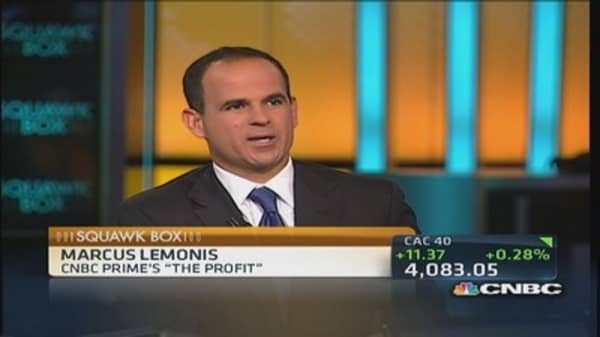As part of the deal, the board "reaffirmed its overwhelming support" for CEO Myron Ullman and Chairman Thomas Engibous, who had been targeted by Ackman. Ronald Tysoe, who spent 16 years as vice chairman of Federated Department Stores, and another "highly qualified" new director will be added later, the company said.
"The company needs stabilization. The key is getting through this back-to-school and Christmas season in order to reinvigorate traffic," said Dana Telsey, CEO of the Telsey Group. "Boardroom fights don't need to be played out on main street."
The company will "probably never be what it was," Telsey told "Squawk Box." She added that with customer traffic over the past few quarters, "getting back to flat would be a victory." She said that at this level, the company is a "risky" name, but could potentially be a buy.
Penney needs to "get back to its basics," said Marcus Lemonis, host of CNBC's "The Profit" and a specialist in business turnarounds. "This company really got away from its core competency, not only on the marketing side, but also on the merchandising side."
"They really have an identity crisis," he said. "People are spending too much talking about the board and not enough about the management team." Lemonis added that the new management needs to understand the moving parts in the company, understanding the strengths and weaknesses of middle management and hiring a "dream team" to manage day-to-day operations.
"What the company needs to do is get a tough CEO—man or woman—who is going to tell the board to get out of the way for a while. Let me bring in my team, let me put in the right players. I don't want the board hiring my marketers," he said. "It's all about people."
Ackman explained to CNBC his decision to speak out and then step down.
"I elevated a bunch of issues that are critically important by making them public," Ackman told CNBC. "We came to an agreement on Ron Tysoe."
He stepped down because "the board will function more effectively without the noise."
Ackman also quoted a 1993 letter from Warren Buffett explaining his highly public position on the company:
"A director who sees something he doesn't like should attempt to persuade the other directors of his views. If he is successful, the board will have the muscle to make the appropriate change. Suppose, though, that the unhappy director can't get other directors to agree with him. He should then feel free to make his views known to the absentee owners. Directors seldom do that, of course. The temperament of many directors would in fact be incompatible with critical behavior of that sort. But I see nothing improper in such actions, assuming the issues are serious. Naturally, the complaining director can expect a vigorous rebuttal from the unpersuaded directors, a prospect that should discourage the dissenter from pursuing trivial or non-rational causes."




